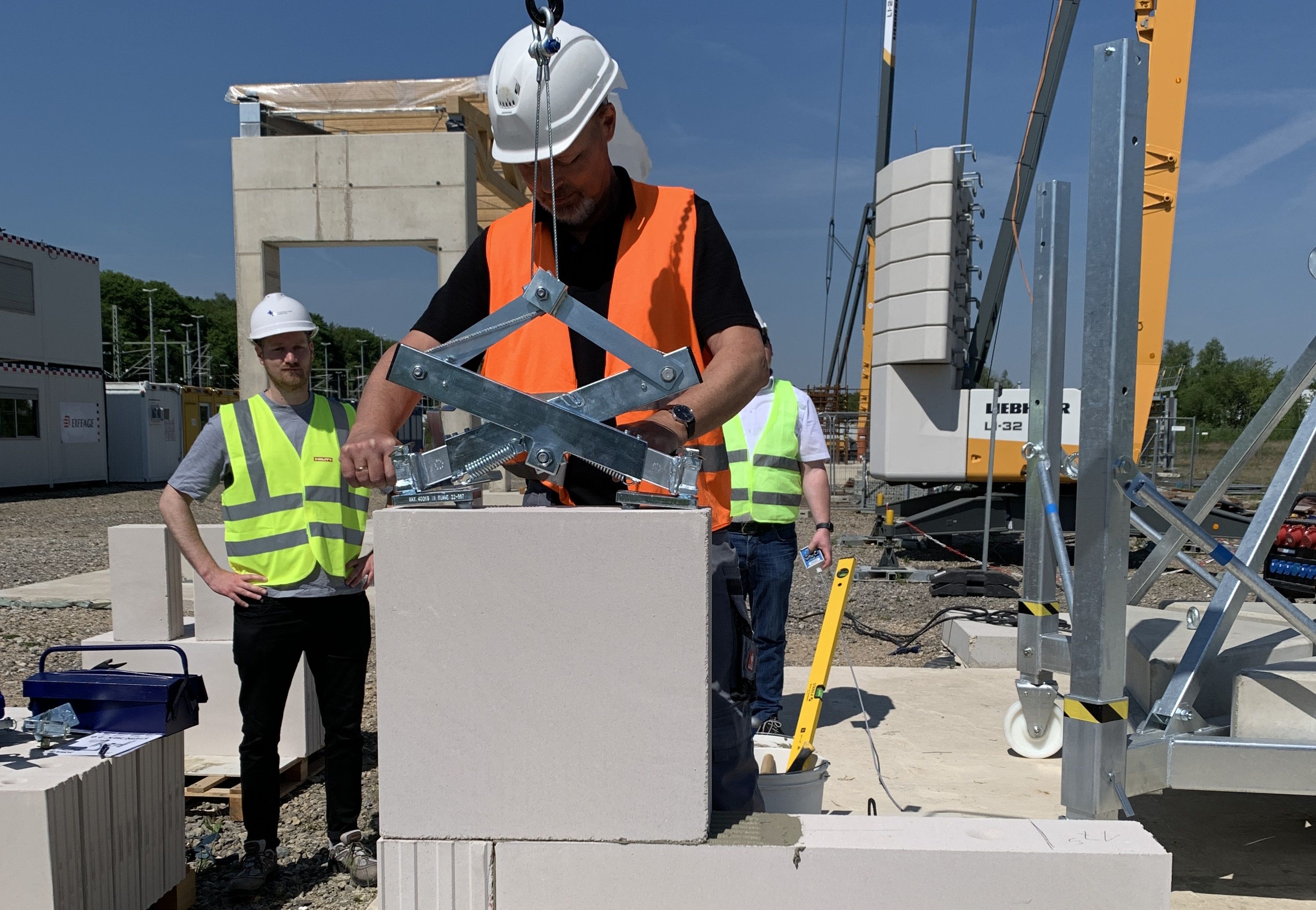Construction must become more efficient - one of the most important challenges facing our industry, especially in view of the current shortage of skilled workers and the demands of increasingly large-format construction elements. To constantly optimize our processes and find better solutions for our customers, we have been cooperating with universities and other institutions for years. One of these is our cooperation with RWTH Aachen University.
As part of a research project with the master’s degree program in Construction & Robotics, more specifically the Reference Construction Site of the Center Construction of Robotics, two master's theses are investigating whether and how digital assistance systems (DiVer) can systematically simplify large-scale construction.
Development of a digital assistance system
The research project involves the creation of a digital model of a mini crane as an assistance system. For the project, the company Schulte-Transportsysteme provided the Stein-Rex 2.0, a mini crane that can move construction elements in the tightest of construction conditions thanks to its multi-joint boom.
The laying aid is equipped with simple sensor technology to make the laying process measurable in the real implementation. On the one hand, this data will be used to document the progress of construction work, and on the other hand to make statements about efficiency. In a further step, improvements could then be made as to the extent to which the joints can also be moved automatically.
"Our aim is for the results of the master's thesis to also flow into the further development of our mini cranes so that we can implement construction projects even more ecologically, economically and ergonomically in the future. After all, in the best-case scenario, the employee on the construction site will receive feedback with the help of artificial intelligence so that he or she can work even more energy-efficiently and efficiently by changing the settings, for example," explains Christian Klein, one of the managing directors of Schule Transportsysteme.
Significance for Xella
Xella also benefits from this research: "The use of digital assistance systems on construction sites helps make construction with large formats in new buildings as well as in renovation projects user-friendly and safe to work with. We are convinced that the results will make a significant contribution to the sustainable use of components weighing up to 400 kg, particularly in the digitalization of construction processes," says Andreas Radischewski, Digital Building Solutions and Transformation Manager at Xella.
